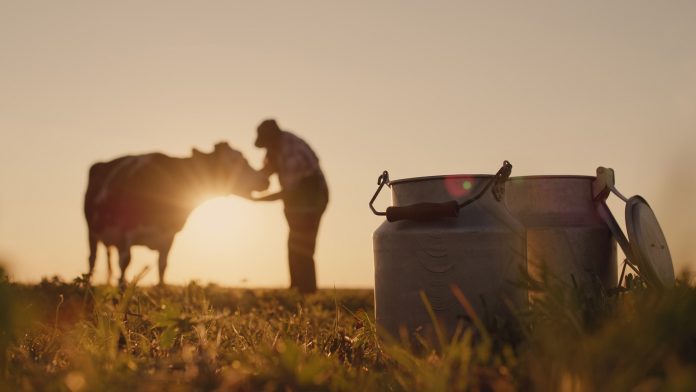
Roxane Feller, Secretary General of Animalhealth Europe, outlines why Europe must recognise that human health and animal health share more than just antibiotics.
As the EU adopts a new Global Health Strategy, the true role of animal health – in preventing the spread of diseases as well as promoting safer, sustainable food systems – must be further incorporated.
The role of animals in ‘One Health’ – the connection between animal, human, and environmental health – is often singularly reduced to antibiotic resistance, and the misuse of antibiotics in animal husbandry. This can have harmful knock-on effects by reducing the effectiveness of these treatments for people, as well as for animals. While One Health has been recognised as one of the three key priorities for the new strategy, a more nuanced approach is clearly needed.

With its newly adopted Global Health Strategy, the EU not only has an opportunity to shape global health policies for decades to come, but set an example of how to fully leverage One Health for the benefit of people, animals, and the planet
The importance of a One Health strategy
One Health approaches must encompass more than antibiotic resistance, and instead strive for a balance between the priorities facing human, animal, and ecosystems’ health, while recognising their inherent interconnectivity. These approaches should be the foundation of any effective public health strategy, as neglecting animal health only leaves populations exposed to emerging disease threats.
With its newly adopted Global Health Strategy, then, the EU not only has an opportunity to shape global health policies for decades to come – including the ‘pandemic prevention treaty’ currently under discussion at the World Health Organization – but can also set an example of how to fully leverage One Health for the benefit of people, animals, and the planet.
This can be achieved by adopting a truly interconnective and expansive One Health strategy that fully capitalises on the key role that animals can, and do, play towards the betterment of public health.
For starters, policymakers should treat animal health as a central component of public health, recognising the full range of connections that exist between animal, human, and environmental health, beyond antibiotic resistance.
This means implementing expansive One Health actions as part of the EU’s new health strategy, including new policies which promote greater disease risk monitoring in animals, paying greater attention to the health component of animal welfare standards, and streamlining guidelines on veterinary intervention to prevent animal disease outbreaks.
Furthermore, policymakers should also prioritise preventative animal health measures, such as vaccinating farm animals, which can limit diseases passing to people, preventing outbreaks in the first instance.
The role of animal health in emerging diseases
Animals are the first line of defence against many emerging diseases, of which just over 70% emerge from wild animals, therefore further attention also needs to be paid to regulatory processes for animal vaccines so that emerging threats can be dealt with quickly and effectively.
Secondly, EU policymakers should further solidify animal health as the foundation of food safety in the regulations that govern the safety of our food. The EU has an opportunity to cement its strong legacy of food safety in a new global health strategy and can leverage One Health success stories such as past efforts to control salmonella outbreaks, cases of which have significantly declined in Europe since their peak in the 1990s.
EU institutions have long championed the connection between animal health and food safety, as in the aftermath of the BSE – or ‘mad cow disease’ – outbreak in the 1990s, when governments acted quickly to bring regulations concerning the safety of food under the umbrella of public health authorities.
Raising public awareness about the links between animal health and food safety protects people as well as animals. The campaign to prevent travellers from taking pork products overseas, for example, directly responds to the threat of spreading African Swine Fever, which can survive on contaminated pork products and can significantly impact both animal health and human livelihoods. Such safety measures can also ease the burden on developing countries, which are disproportionately impacted by foodborne diseases.
Finally, in adopting an expansive One Health approach, EU policymakers must also maximise animal health’s role in more sustainable food systems. This is primarily because healthier animals mean less wasted resources that do not ultimately end up consumed as food, contributing to greater sustainability across the entire food system.
The 1.3 million pigs across Europe lost to African Swine Fever alone, between 2016 and 2020, also represent a significant environmental cost because of the loss of resources and emissions created for no food output.

Raising public awareness about the links between animal health and food safety protects people as well as animals
Elsewhere, healthier animals also contribute positively to organic agriculture, for instance, through manure that can be used for fertiliser, livestock grazing for land management and ecosystem services, and the upcycling of plants that – while inedible for humans – can be used as animal feed.
Global health is only as strong as its most vulnerable countries, and despite successes in reducing the threat of livestock disease in Europe, the bloc must remain vigilant to reduce the threats that exist elsewhere, while also leading the way for the rest of the global community to adopt One Health approaches.
By adopting a more nuanced One Health approach as a central philosophy throughout its new Global Health Strategy, the EU can help shape the animal-inclusive health policies needed to achieve a healthier and safer world.
Roxane Feller
Secretary General
Animalhealth Europe
https://animalhealtheurope.eu/
https://www.linkedin.com/company/animalhealtheurope/
https://www.facebook.com/animalhealthEU
https://twitter.com/animalhealtheu
https://www.youtube.com/user/ifaheurope
This article is from issue 24 of Health Europa Quarterly. Click here to get your free subscription today.









